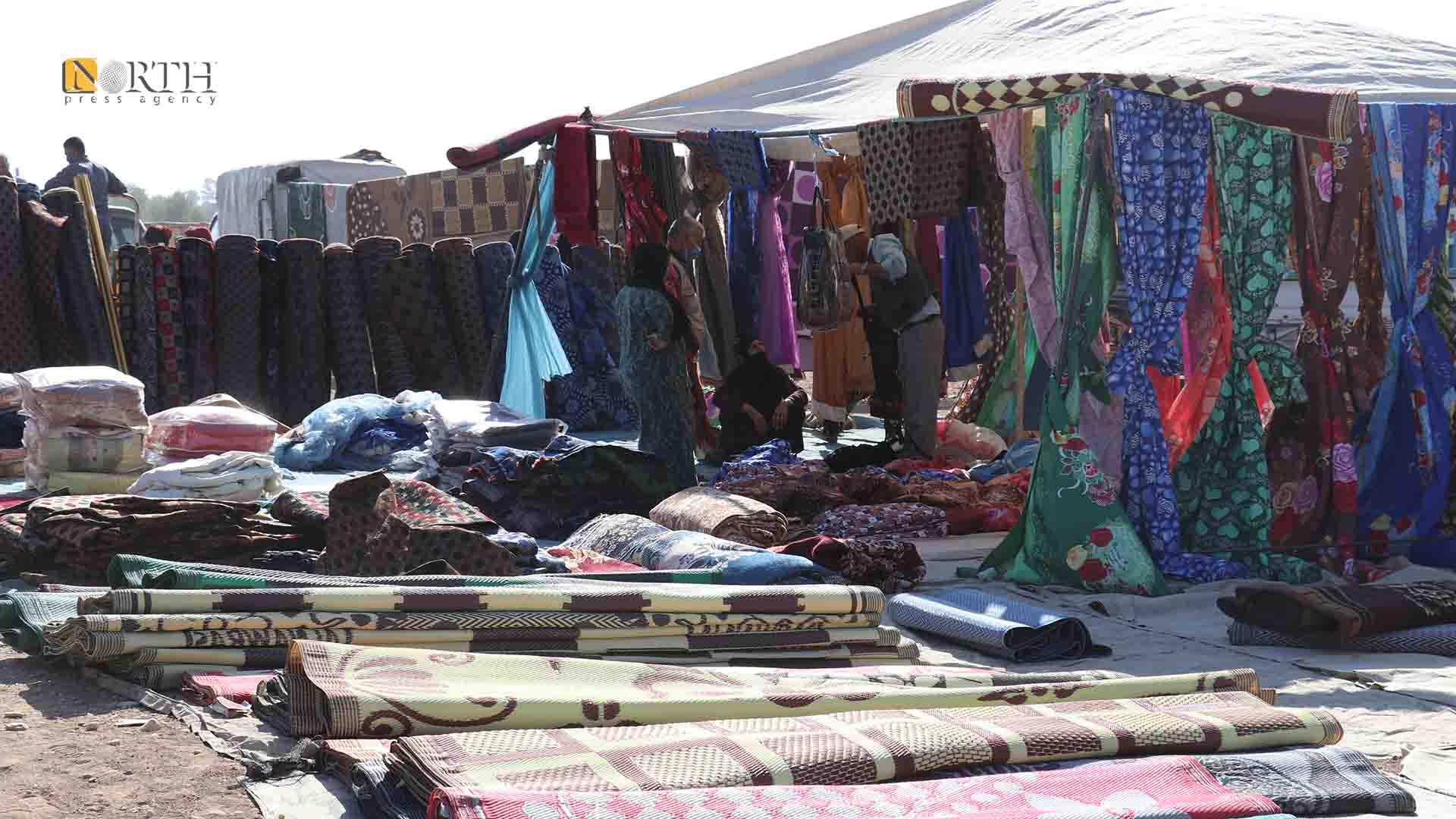JIL AGHA, Syria (North Press) – Hussein Yassin, a resident of the countryside of Jil Agha, northeastern Syria, did not expect that his children would become victims of his arranged marriage, since he forced his cousin into arranged marriage years ago.
The increase in the number of births of children with special needs from parents who are related to another has led parents to reconsider inherited customs such as forced and arranged marriages between relatives.
Rural residents fear that the customs of consanguineous marriage will return, due to the high cost of dowries and living difficulties that worsen year after year.
“I forced my cousin into arranged marriage due to my bad living situation; I could not afford to marry someone else, so I married my cousin out of habit,” Yassin said.
He added that he was not aware that inbreeding increases the likelihood of genetic diseases among children.
Yassin had a healthy child, but his second child was born with cerebral atrophy and lack of growth for genetic reasons, according to doctors who saw the child.
“Thank God, my first son was in good health. Unfortunately, my second son was disabled. We went to the doctor; he told us that his condition is related to inbreeding,” Yassin told North Press.
In the forced marriage tradition, the cousin forces his uncle’s daughter into forced marriage and forbids her to marry anyone else. The girl must comply with the compulsory marriage, even if she is not satisfied with it. If she was previously engaged, she must end the engagement to marry her cousin.
Yassin and other residents stressed the necessity of the abandonment of this tradition. Yassin himself said that “I do not recommend inbreeding.”
Cousin marriage doesn’t always result in the birth of ill children, but it increases the possibility of diseases emerging, and 82 genetic diseases can be caused by inbreeding, according to Dr. Fadel Fares in the town of Jil Agha.
Amira Aoueid, a woman from the Jil Agha countryside who is married to her cousin, said that she was not aware of the consequences of following this traditions, and she regrets marrying her cousin.
“My deaf son is the victim of my arranged marriage, the victim of the inherited customs of a society that does not care what happens to him, since it does not provide any medical or material care to them,” Aoueid added.
The Kurdish residents of Jil Agha indicate that the tradition of forced marriage does not exist among their families, but other customs of cousin marriage which were present in decades past have gradually receded.
Wadha Mutairen, also from Jil Agha, was saved from marrying her cousin thanks to the Sheikh of her tribe supporting her at the time.
“There is no arranged marriage anymore; no one can force another into marriage. If the woman agrees, she gets married; if not, she can’t be forced,” Mutairen told North Press.
It is rare for cousin marriage to take place with the consent of both parties. It may even lead to quarrels and sometimes fights between relatives themselves or between cousins, Mutairen added.
Some relatives may also use the tradition to exact person revenge, as a man may prevent his cousin from marrying anyone else but not marry her himself in order to punish her or take revenge on her parents or brothers.
Mutairen said that folk songs and tales indicated the injustice that the girl is exposed to, “She might want to marry someone else, how can they force her into marrying someone?”

